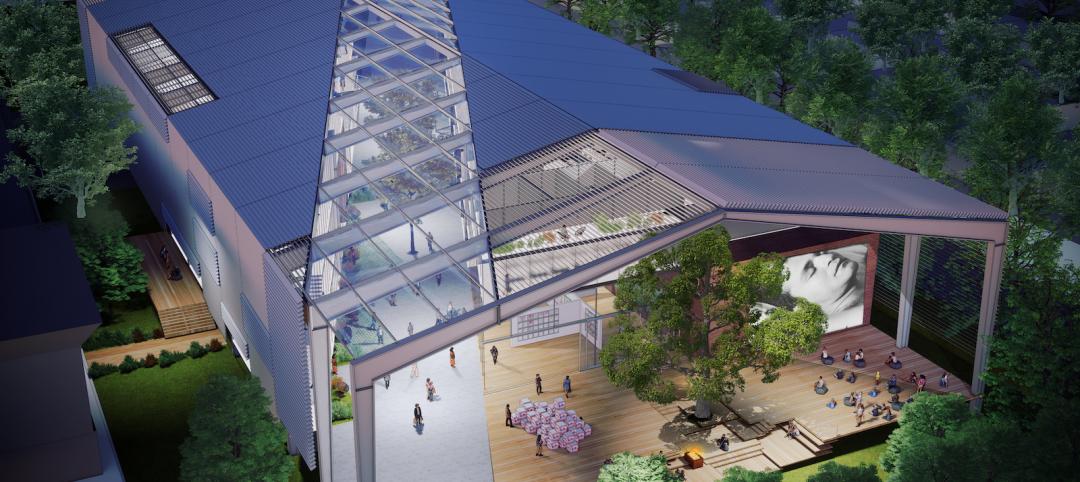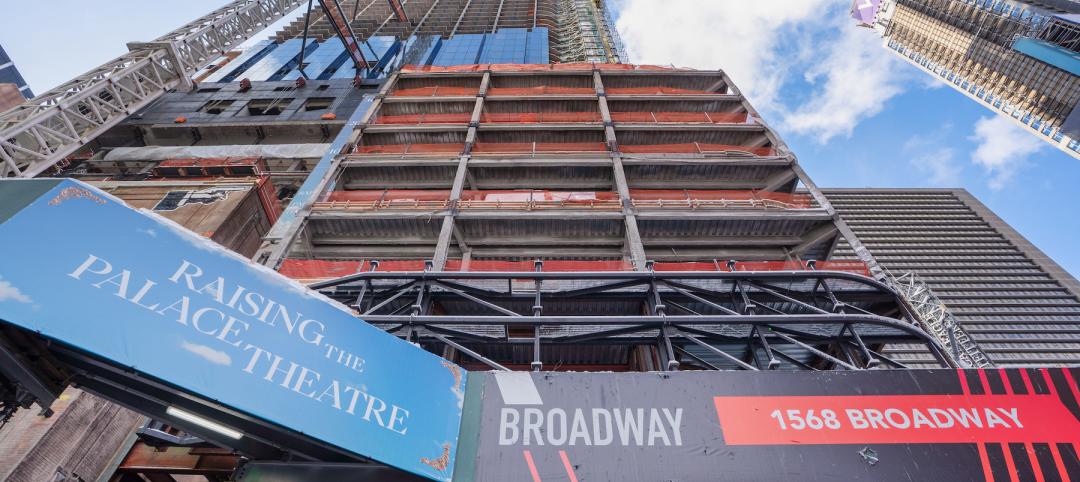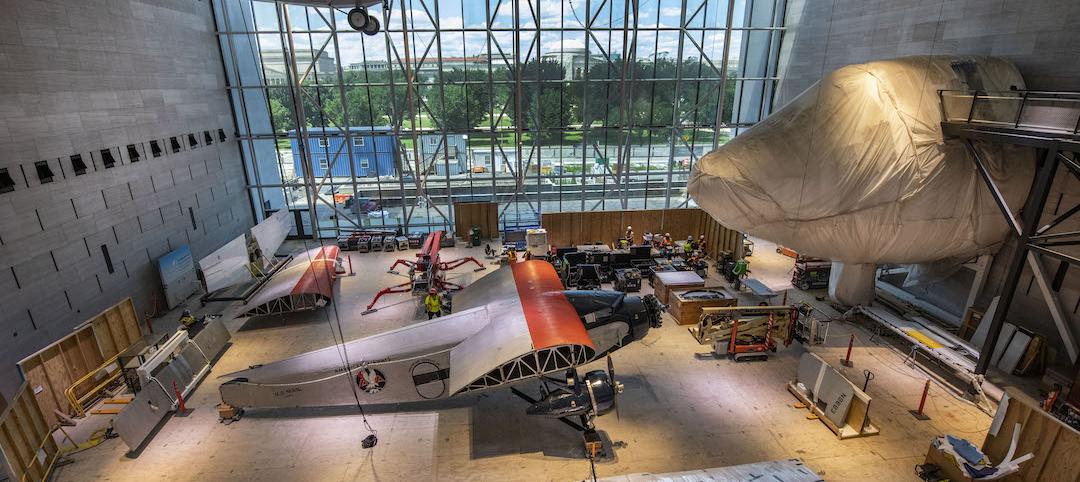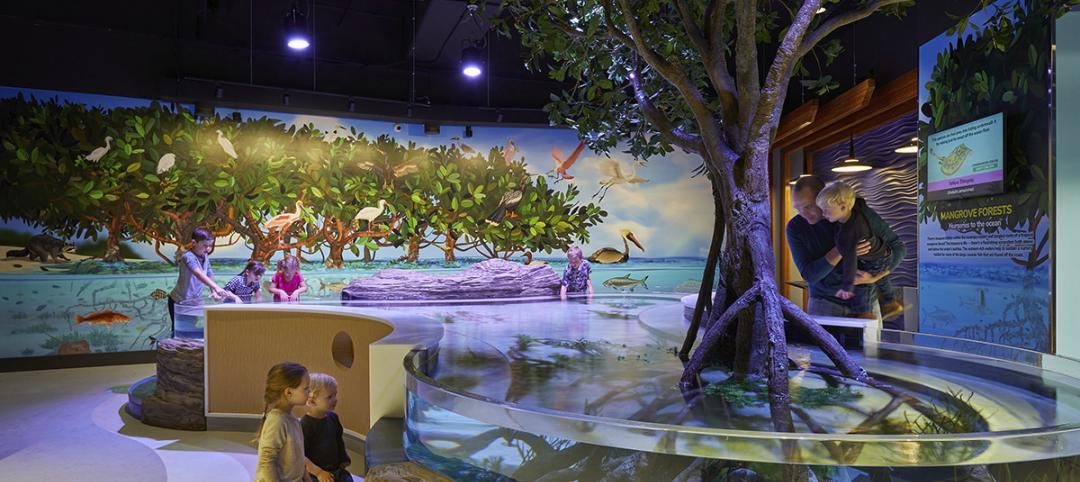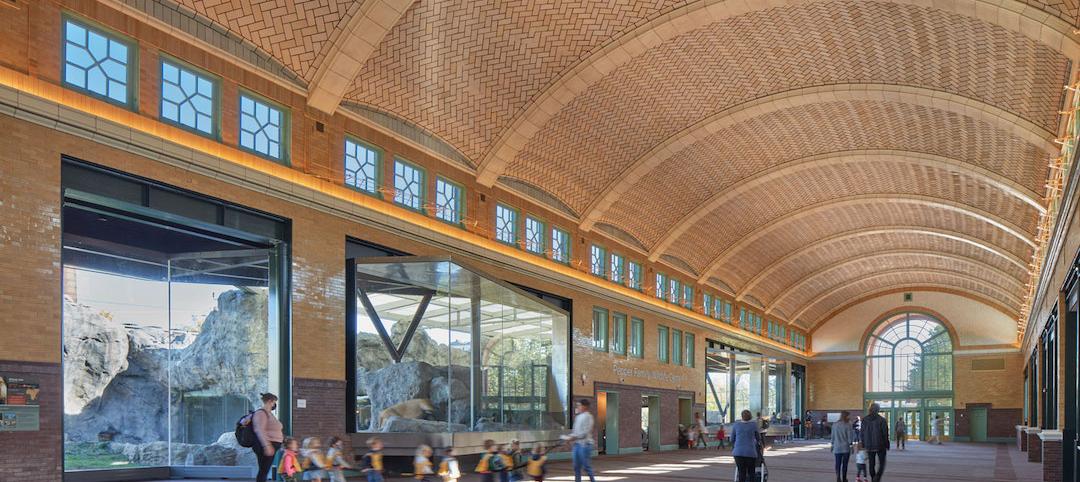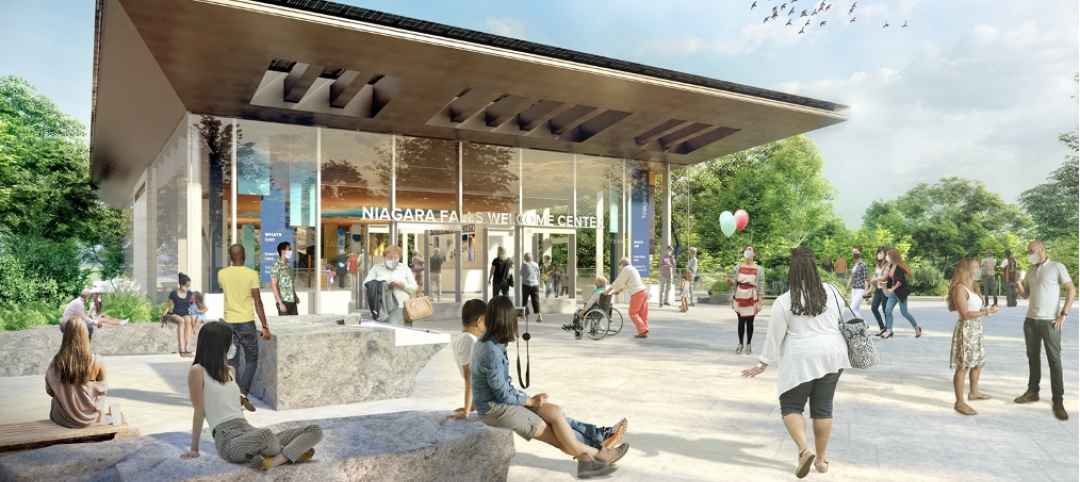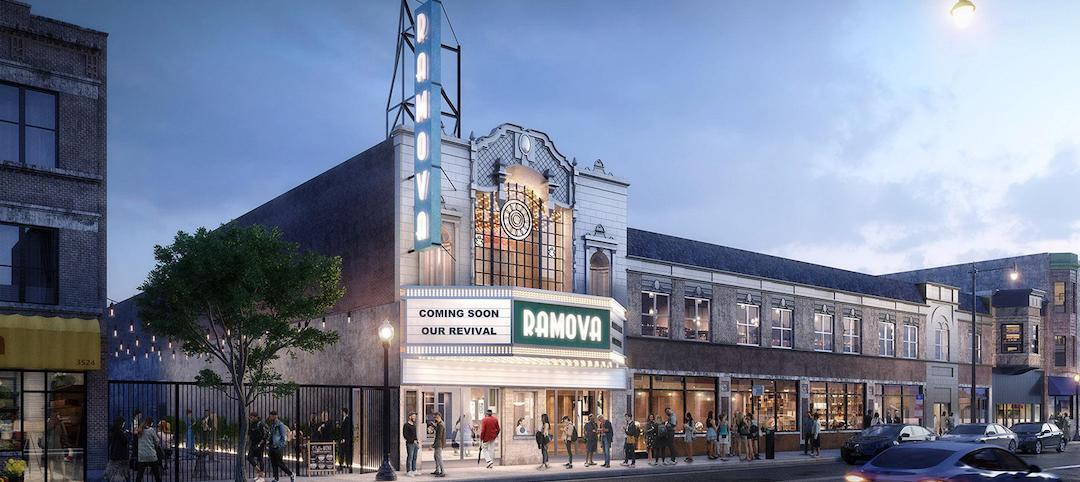Located in Chicago's Lincoln Park neighborhood, Victory Gardens Theater Company has welcomed up-and-coming playwrights for 33 years. In 2004, the company expanded its campus with the purchase of the Biograph Theater for its new main stage. Built in 1914, the theater was one of the city's oldest remaining neighborhood movie houses, and it was part of Chicago's gangster lore: in 1934, John Dillinger was gunned down by the FBI in the Biograph's alley.
Architect Daniel P. Coffey, FAIA, of Daniel P. Coffey and Associates, and general contractor Pepper Construction preserved the landmark exterior, restoring the façade and replacing the historic marquee with a replica of the original.
Inside, the old movie house had been chopped up into a hodge-podge cineplex. The Building Team and the theater company “wanted something unexpected and fresh,” said Coffey. Once inside, theatergoers would enter Victory Gardens' “new world.”
That “new world” had to be created in a relatively small space—30,000 sf—and on a tight construction budget—about $6.4 million. The Building Team created a lobby that puts on a performance of its own, creating the appearance of a pricier and larger space than it actually is. Hints of cherry hardwood trim and marble counters were used to suggest a heftier budget. Drywall “clouds” and mirrors were added to make it appear more expansive.
In the theater itself, the company wanted an intimate space for both audience and performers. The walls were painted rich colors of ochre and burgundy to create a warm atmosphere. The 299 seats were angled to achieve ideal sightlines with minimal blocking; no patron is more than 45 feet from the stage.
“There's not a bad seat in the house,” said Reconstruction Awards judge Walker Johnson, FAIA, who added, “While the regular theatergoers have remained very loyal, this new venue can only help vault Victory Gardens to new heights.”
Related Stories
University Buildings | Feb 18, 2022
On-campus performing arts centers and museums can be talent magnets for universities
Cultural facilities are changing the way prospective students and parents view higher education campuses.
Resiliency | Feb 15, 2022
Design strategies for resilient buildings
LEO A DALY's National Director of Engineering Kim Cowman takes a building-level look at resilient design.
Cultural Facilities | Jan 27, 2022
Growth in content providers creates new demand for soundstage facilities
Relativity Architects' Partner Tima Bell discusses how the explosion in content providers has outpaced the availability of TV and film production soundstages in North America and Europe.
Cultural Facilities | Jan 18, 2022
A building in Times Square aspires to be a marketing and arts tool
The 580-ft TSX Broadway will have several LED signs on its exterior, and host an existing 27,000-sf theater that was hoisted 30 ft above street level.
Cultural Facilities | Dec 16, 2021
Museums and other cultural spaces reconsider how to serve their communities
Efforts to raise capital for cultural buildings became necessary during the COVID-19 health crisis.
Giants 400 | Nov 19, 2021
2021 Cultural Facilities Giants: Top architecture, engineering, and construction firms in the U.S. cultural facilities sector
Gensler, AECOM, Buro Happold, and Arup top BD+C's rankings of the nation's largest cultural facilities sector architecture, engineering, and construction firms, as reported in the 2021 Giants 400 Report.
Cultural Facilities | Nov 19, 2021
Goettsch Partners completes Lincoln Park Zoo’s Pepper Family Wildlife Center
The project doubles the size of the previous lion habitat.
Cultural Facilities | Nov 17, 2021
Henning Larsen-designed Shaw Auditorium opens at the Hong Kong University of Science and Technology
The project celebrated its grand opening as part of HKUST’s thirtieth anniversary celebration.
Cultural Facilities | Oct 19, 2021
Niagara Falls is getting a bigger Welcome Center
The GWWO Architects-designed building will mostly sit on the site of the center it replaces.
Reconstruction & Renovation | Oct 13, 2021
Restoration of Ramova Theater in Chicago’s Bridgeport Neighborhood begins
The building was originally built in 1929.


